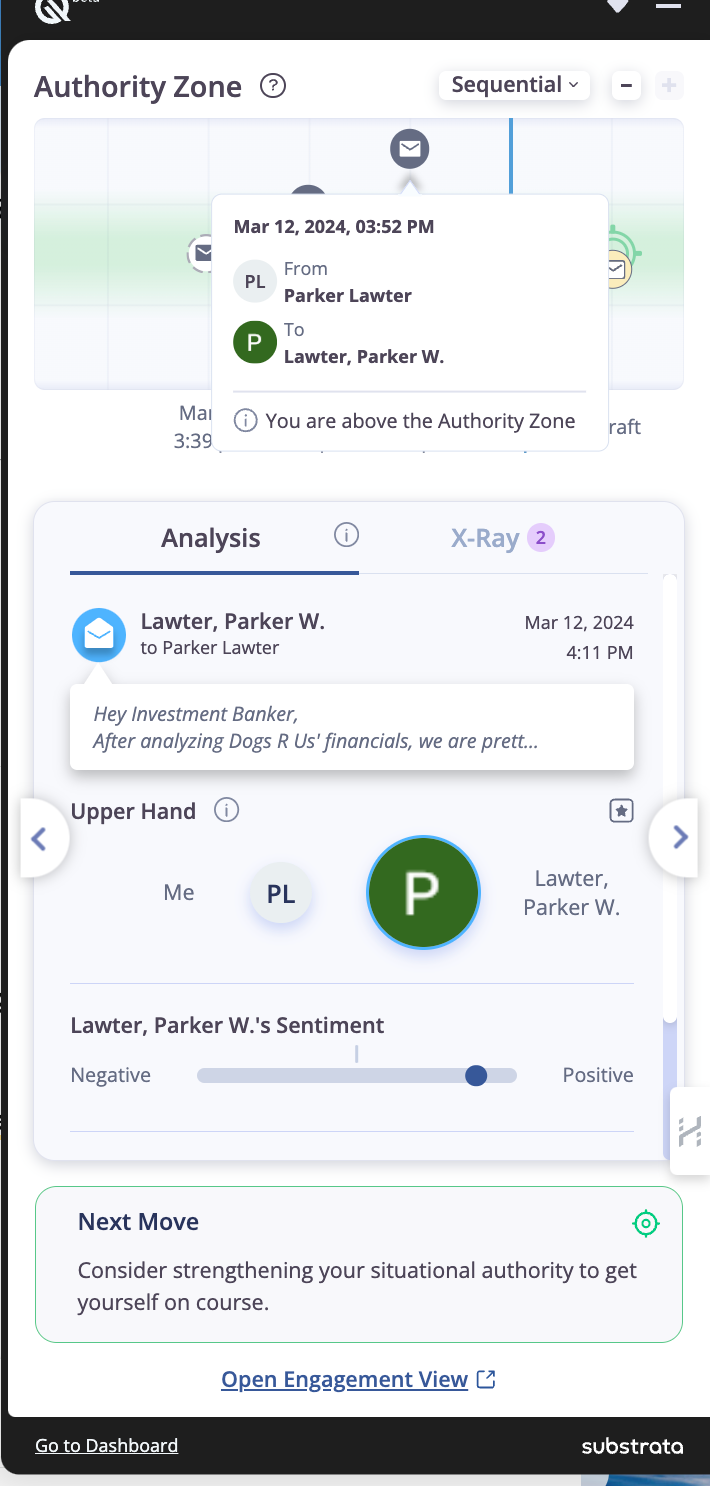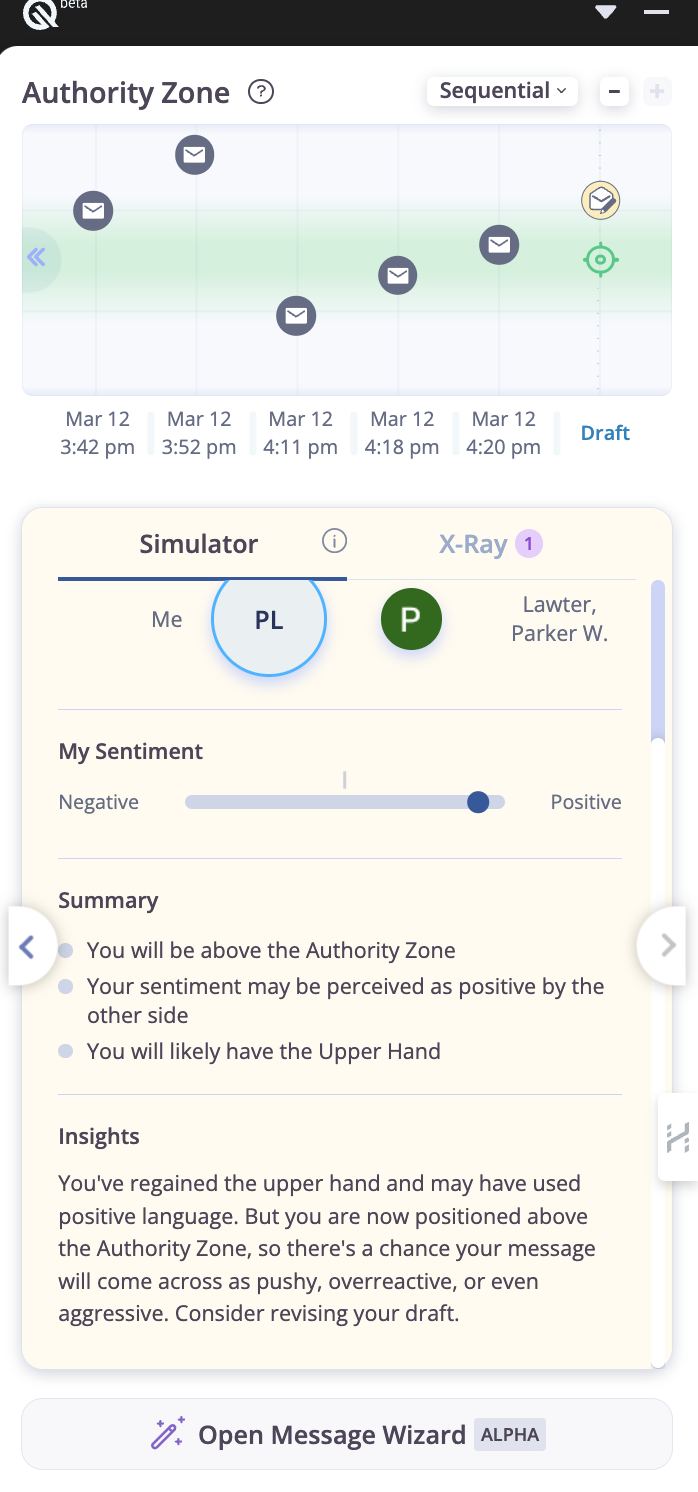#13 Substrata Negotiations
This week, I share an experiment I conducted with an AI tool that analyzes email negotiations.
AI will change the world, but how will it change M&A? I want to focus on AI’s impact on M&A in this newsletter. I am not an expert on either M&A or AI, but I want to learn about both topics and how they intersect. I thought there might be others in my situation (or people who are experts in one field or the other) who would find information on M&A and AI helpful in their careers, so I created this newsletter to track and share what I learn.
M&A AI Tool Review—Substrata
This tool is for anyone (PE professional or M&A lawyer) who negotiates via email. The tool detects tone in emails and can judge the status of a negotiation. I got a free trial and tested it out by conducting a fake negotiation with ChatGPT as my counterparty. ChatGPT was the investment banker reaching out to me, the buyer, to sell a pet business, Dogs R Us.
It is a little confusing, but the tool analyzes any email that the user sends or receives and adjusts the “authority zone” accordingly. If the negotiation rises above the green zone in the middle, the user is likely too pushy or assertive, which may cause the negotiation to end. If the negotiation is below the green zone, the counterparty is likely to see the user as a push-over, without “authority.” If the negotiation is in the green, that means there is a good balance between assertiveness and politeness, and the negotiation is likely to end successfully for the user.
Here is some of the negotiation went:

Substrata has other features, such as a dashboard to keep track of multiple negotiations, an LLM that can produce emails to send based on how the negotiation is going, and provides analysis on time between emails and email length.
I am not exactly sure how useful this is because I would think (but by no means am I sure about this) that the recipient of an email could sense the tone used by the sender. But I think it could be helpful in some circumstances. Maybe for people who struggle to sense the tone of an email? Also, how can the AI be sure about the sender’s True Tone? For one, the sender could fake their tone. For example, they could send a nice-sounding email but feel angry, hurt, or offended in reality. I’m not sure it would be super helpful to have an AI analyze the “fake” emails from the opposing side of the negotiation. In fact, if relied on too much, it could give the user a false sense of confidence during a negotiation. Human interaction can be nuanced, and I am unsure whether AI can sense nuance.
Overall, this is an interesting application of AI to negotiations. I think the idea is there, but it may not be super effective. I am looking out for AI analysis of, video chat, phone calls, or face-to-face negotiations. An AI analysis of these types of negotiations would be more helpful because it is much harder for people to hide their true emotions in those contexts.1
About me
My name is Parker Lawter, and I am a law student pursuing a career as an M&A lawyer. I am in my last semester of law school, and with some extra time on my hands, I decided to create this newsletter. I hope it is informative and helpful to anyone who reads it! I am not an expert at either M&A or AI, but I am actively pursuing knowledge in both areas, and this newsletter is a part of that pursuit. I hope you’ll join me!
Follow me on LinkedIn: www.linkedin.com/in/parker-w-lawter-58a6a41b
All views expressed are my own!
The technology already exists. I saw a 60-minute segment about an AI tool that analyzes classrooms to see which students are paying attention to the professor or not!












